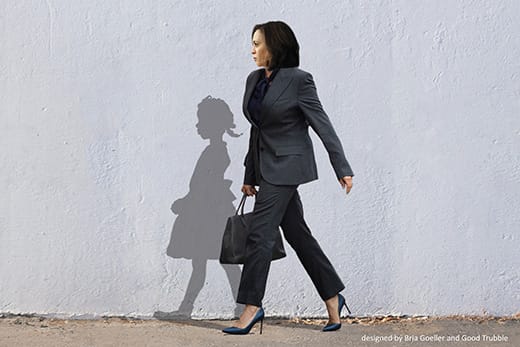“Out of many, one”

Good morning from Capitol Hill, where I’m digesting four days of the Democratic Convention, viewed from afar.
Alex Howard here, with another civic text.
Tons of ink and pixels have already been spent analyzing the meaning, quality, and accuracy of the convention speeches. I’d like to eschew fact-checking or parsing policy today, for many good reasons. You can find that and watch the speeches without filter or favor for yourself, over on YouTube.
Instead, I want to reflect on what it means to see the multitudes our nation contains reflected on stage. Take some time to watch and enjoy the roll call of states, if you missed it.
I quite enjoyed the 2020 virtual version, but this music driven celebration went further. It felt like a genuine (small-d) democratic innovation, turning a staid and generally boring symbolic ritual — into a glorious celebration of American diversity and shared history.
The United States is stronger because of the successive waves of immigration over the centuries, as generations of people from around the world have come to our shores yearning to breathe free and build a better future for their children.
Research shows that the children of immigrants succeed at disproportionate rates, as professors Ran Abramitzky abd Leah Boustan argue in TIME:
…no matter which country their parents came from, children of immigrants are more likely than the children of the U.S.-born to surpass their parents’ incomes when they are adults. This pattern holds both in the past and today, despite major changes in U.S. immigration policy over the past century, from a regime of nearly open borders for European immigrants in 1900 to one of substantial restrictions in recent decades. Children of immigrants from Mexico and the Dominican Republic today are just as likely to move up from their parents’ circumstances as were children of poor Swedes and Finns a hundred years ago.
Not only does upward mobility define the horizons of people’s lives, but it also has implications for the economy as a whole. Even immigrants who come to the U.S. with few resources or skills bring an asset that is hugely beneficial to the U.S. economy: their children. The rapid success of immigrants’ children more than pays for the debts of their parents.
Last night, Americans and the world witnessed history when Vice President Kamala Harris — an accomplished daughter of immigrants — accepted the nomination of the Democratic Party for President.
It was another milestone in the long journey our nation has made over the centuries.
What will matter most to billions of people around the world is how she governs in office if elected, not who she is.
The fact that she was on the stage at all, however, sends a powerful message about how far we’ve come since the United States became a full(er) democracy in 1965.

It’s a reflection of our uneven progress towards becoming a more perfect union, where out of many, we seek to become one.
Every American should see the hope embodied in that historic symbolism, not fear the change as a harbinger of societal collapse or dysfunction.
We should all celebrate throwing open opening the doors of possibility to every child born in our sprawling, diverse union, no matter their circumstances or parentage.
More than two months remain before Election Day. No one knows what lies ahead in the interim. We do know that our past is prologue to this next chapter of American history, which has yet to be written.
We remain burdened by what has been, yet continue to rise, lifted by the hope of what might yet be: a pluralistic, multiracial democracy united by a common civic creed.
“Out of many, one.”



